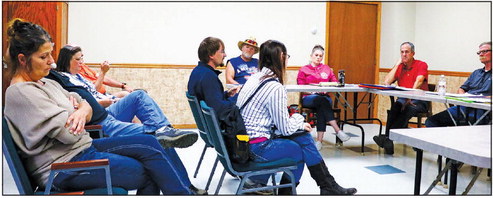Legal advice needed before approval


Eric and Jackie Phelps (sitting, front) appeared before the Cornell City Council in a public hearing Aug. 5, to answer any questions about their proposed four-client adult family h...


Eric and Jackie Phelps (sitting, front) appeared before the Cornell City Council in a public hearing Aug. 5, to answer any questions about their proposed four-client adult family h...